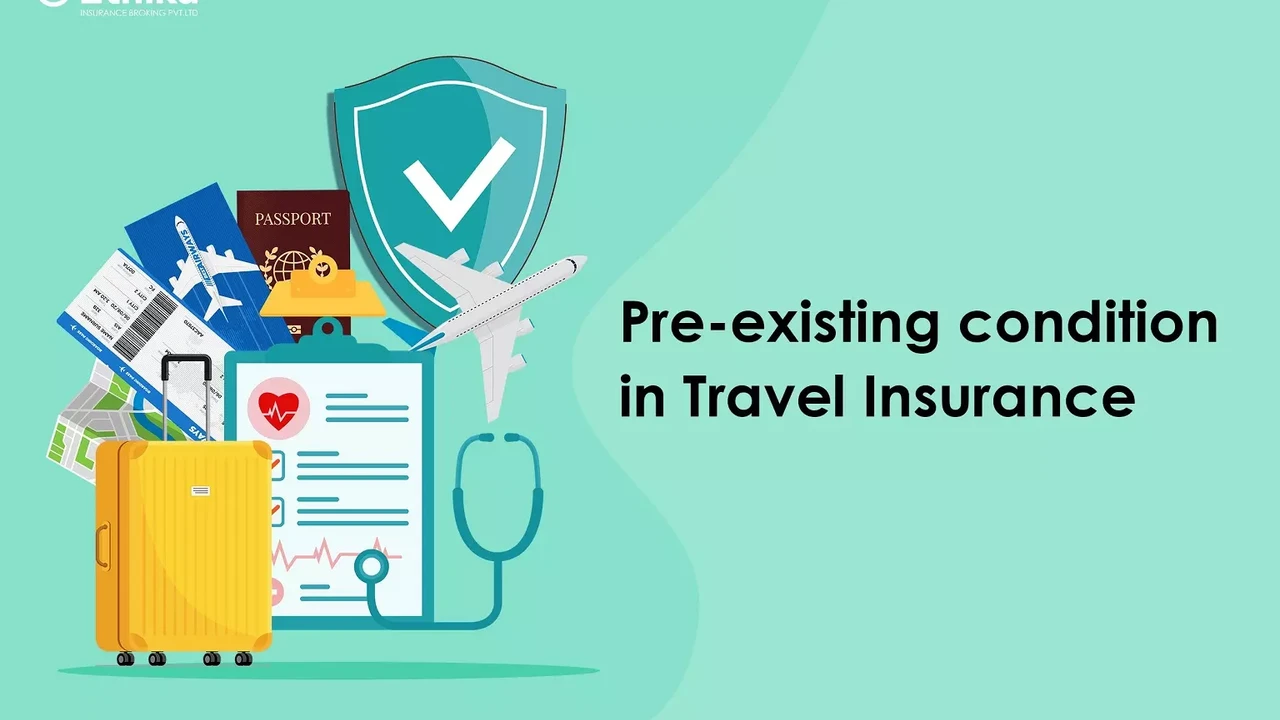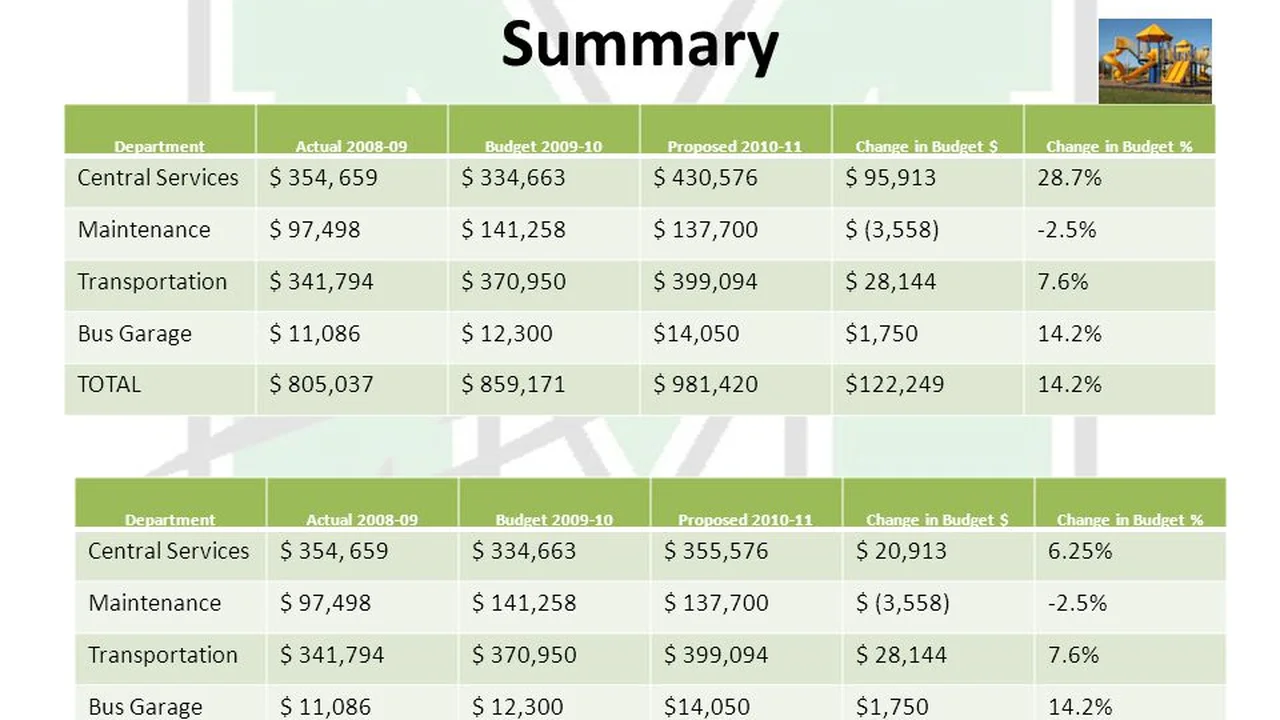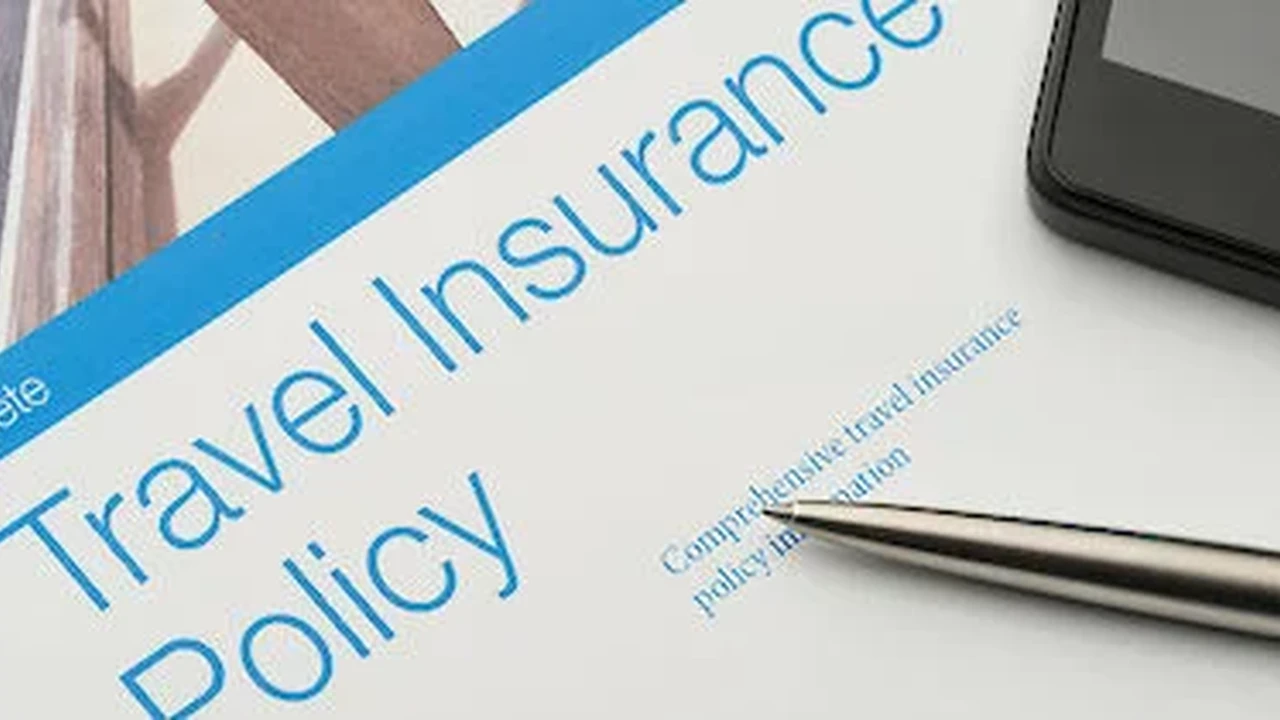Travel Insurance and Pre-Existing Conditions: Claim Challenges

Understanding Pre Existing Conditions and Travel Insurance Claim Eligibility
Okay, so you're planning a trip, awesome! But you've got a pre-existing condition, and now you're wondering if travel insurance will actually cover you. It's a valid concern! Pre-existing conditions are basically any health issue you already have before you buy your travel insurance. Think diabetes, heart conditions, asthma, even something like high blood pressure. Insurance companies worry about these because they see them as potentially more likely to cause a claim while you're traveling. That’s why understanding the eligibility criteria is super important.
Most travel insurance policies will specifically define what they consider a pre-existing condition. Read the fine print carefully! They might have a "look-back" period. This means they'll look back a certain amount of time (like 60 days, 90 days, or even longer) to see if you've received treatment, medication, or advice for a specific condition. If you have, it's likely considered a pre-existing condition.
Now, here’s the tricky part: not all pre-existing conditions are automatically excluded. Some policies offer waivers or coverage for stable, controlled conditions. "Stable" usually means your condition hasn't changed significantly in a certain period (again, the look-back period). "Controlled" usually means you're managing it with medication and following your doctor's advice. You might need to provide documentation from your doctor to prove this.
Navigating the Travel Insurance Claim Process with Pre Existing Medical Conditions
So, you need to make a claim. Don’t panic! Here's how to navigate the process, especially when a pre-existing condition is involved. First, gather all your documentation. This includes your travel insurance policy, medical records related to your pre-existing condition (including diagnoses, treatment plans, and medication lists), and any receipts for medical expenses you incurred while traveling.
Next, contact your insurance company ASAP. They'll guide you through their specific claims process. Be prepared to answer detailed questions about your medical history and the circumstances surrounding your claim. Honesty is key! Don't try to hide anything about your pre-existing condition. The insurance company will likely investigate anyway, and withholding information can invalidate your claim.
You might need to get a statement from your doctor confirming the stability of your condition before your trip and explaining how it relates to the medical issue you experienced while traveling. This is crucial for demonstrating that your pre-existing condition was properly managed and didn't directly cause the claim.
Be patient! Claims involving pre-existing conditions often take longer to process because the insurance company needs to thoroughly review your medical history and determine if the claim is covered under the policy terms.
Travel Insurance Options and Pre Existing Conditions Coverage Policies
Okay, let's talk about your options. You’ve got a few paths to explore when it comes to finding travel insurance that covers pre-existing conditions.
- Standard Travel Insurance Policies: Some standard policies offer limited coverage or waivers for pre-existing conditions, especially if they are stable and controlled. These are usually the most affordable options.
- Specialized Travel Insurance for Pre-Existing Conditions: These policies are specifically designed to cover individuals with pre-existing conditions. They might be more expensive, but they offer broader coverage and fewer exclusions.
- Group Travel Insurance: If you're traveling with a group (like a tour group or a conference), the group's travel insurance policy might offer some coverage for pre-existing conditions. Check the details of the policy to see what's included.
When shopping around, compare quotes from multiple insurance companies and carefully review the policy wording. Pay attention to the exclusions, limitations, and any waiting periods that might apply.
Product Recommendations Travel Insurance Coverage for Pre Existing Conditions
Alright, let's dive into some specific products. Keep in mind prices can vary greatly based on your age, trip duration, destination, and the severity of your pre-existing condition. These are just examples, so always get a personalized quote!
Allianz Travel Insurance:
Product: Allianz Global Assistance Comprehensive Plan
Use Case: Great for travelers with stable, well-managed pre-existing conditions. They often offer waivers for pre-existing conditions if you purchase the policy within a certain timeframe of your initial trip booking.
Features: Trip cancellation, trip interruption, medical expenses, emergency medical transportation, baggage loss, and more. Their 24/7 assistance hotline is a big plus.
Pros: Reputable company, good coverage options, potential for pre-existing condition waivers.
Cons: Can be pricier than some other options, waiver requirements can be strict.
Price: Expect to pay around $150-$400 for a two-week trip, depending on your age and coverage level.
World Nomads Travel Insurance:
Product: Explorer Plan
Use Case: Ideal for adventurous travelers, even those with pre-existing conditions (though coverage is more limited). They're known for covering a wide range of activities, like hiking, scuba diving, and skiing.
Features: Medical expenses, emergency evacuation, trip interruption, gear protection, and some coverage for adventurous activities.
Pros: Flexible coverage options, good for active travelers, can be purchased while already traveling.
Cons: Pre-existing condition coverage is generally more limited than specialized policies, can be expensive for longer trips.
Price: Around $100-$300 for a two-week trip, depending on your age and the activities you plan to do.
Travel Guard Travel Insurance:
Product: Travel Guard Preferred Plan
Use Case: A solid all-around option with good coverage for medical expenses and trip cancellations. They offer options for adding pre-existing condition coverage, but it's usually an add-on.
Features: Trip cancellation, trip interruption, medical expenses, baggage loss, travel delay, and 24/7 assistance.
Pros: Wide range of coverage options, good customer service reputation, add-on options for pre-existing conditions.
Cons: Pre-existing condition coverage might require an extra fee, policy wording can be complex.
Price: Expect to pay around $120-$350 for a two-week trip, depending on your age and the add-ons you choose.
InsureMyTrip:
Product: (This is a comparison site, not a specific insurance provider)
Use Case: If you're overwhelmed by all the options, InsureMyTrip is a great place to start. They allow you to compare quotes from multiple insurance companies side-by-side, making it easier to find the best coverage for your needs and budget.
Features: Compares policies from various providers, filters by coverage needs (including pre-existing conditions), customer reviews, and expert advice.
Pros: Saves time and effort, provides a comprehensive overview of your options, unbiased comparisons.
Cons: Doesn't offer its own insurance policies, relies on the accuracy of the information provided by the insurance companies.
Price: Free to use!
Comparing Travel Insurance Products and Pre Existing Conditions
Okay, let's break down how these products stack up against each other, especially when it comes to pre-existing conditions.
- Coverage Breadth: Allianz Global Assistance and Travel Guard tend to offer broader coverage options overall, but you might need to pay extra for pre-existing condition waivers. World Nomads is more focused on adventure activities and has more limited coverage for pre-existing conditions.
- Pre-Existing Condition Waivers: Allianz Global Assistance is known for its pre-existing condition waivers, but they often have strict requirements (like purchasing the policy within a certain timeframe of booking your trip). Travel Guard also offers waivers, but they might be an add-on. World Nomads generally doesn't offer waivers.
- Price: World Nomads can be a good option for shorter trips or if you're primarily concerned with adventure activity coverage. Allianz Global Assistance and Travel Guard are typically more expensive, but they offer more comprehensive coverage.
- Ease of Use: InsureMyTrip is the easiest option for comparing policies side-by-side. The individual insurance company websites can be more time-consuming to navigate.
Here's a quick table to summarize:
| Insurance Company | Coverage Breadth | Pre-Existing Condition Waivers | Price | Ease of Use |
|---|---|---|---|---|
| Allianz Global Assistance | High | Often Available (with requirements) | High | Moderate |
| World Nomads | Moderate (Adventure Focused) | Limited | Moderate | Moderate |
| Travel Guard | High | Add-On Option | Moderate to High | Moderate |
| InsureMyTrip | Comparison Site | N/A | Free to Use | High |
Scenarios for Using Different Travel Insurance Products
Let's look at some scenarios to help you decide which product might be the best fit for you.
- Scenario 1: You have well-managed diabetes and are going on a relaxing beach vacation. Allianz Global Assistance might be a good choice because of their pre-existing condition waivers.
- Scenario 2: You have asthma and are planning a hiking trip in the mountains. World Nomads could be a good option because they cover a wide range of activities, but be aware that their pre-existing condition coverage might be limited.
- Scenario 3: You have a heart condition and are taking a cruise. Travel Guard might be a good choice because they offer comprehensive medical coverage and 24/7 assistance.
- Scenario 4: You're not sure where to start and want to compare multiple options. InsureMyTrip is a great place to begin your search.
Budgeting for Travel Insurance with Pre Existing Health Conditions
Let's be real, travel insurance with pre-existing conditions can be pricey. But here's how to approach budgeting for it:
- Shop Around: Get quotes from multiple insurance companies. Don't just settle for the first one you find.
- Adjust Your Coverage: Think about what coverage you *really* need. Do you need the highest level of medical coverage, or would a lower level suffice? Can you skip the trip cancellation coverage if you're confident you won't need it?
- Increase Your Deductible: A higher deductible will lower your premium, but you'll have to pay more out-of-pocket if you make a claim.
- Look for Discounts: Some insurance companies offer discounts for seniors, students, or members of certain organizations.
- Consider an Annual Policy: If you travel frequently, an annual travel insurance policy might be more cost-effective than buying individual policies for each trip.
Tips for a Smooth Travel Insurance Claim Process with Pre Existing Conditions
To make the claim process as smooth as possible, keep these tips in mind:
- Read Your Policy Carefully: Know what's covered and what's not. Understand the exclusions and limitations.
- Keep Detailed Records: Keep copies of all your medical records, receipts, and travel documents.
- Contact the Insurance Company Immediately: Report any medical issues or incidents as soon as they happen.
- Be Honest and Accurate: Don't try to hide anything about your pre-existing condition. Provide accurate information to the insurance company.
- Follow Up: Don't be afraid to follow up with the insurance company to check on the status of your claim.
Common Mistakes to Avoid When Filing a Travel Insurance Claim with Pre Existing Conditions
Avoid these common pitfalls:
- Not disclosing your pre-existing condition: This is a surefire way to have your claim denied.
- Failing to provide adequate documentation: The insurance company needs proof to process your claim.
- Missing deadlines: There are usually deadlines for filing claims, so make sure you submit everything on time.
- Not understanding your policy: Read the fine print so you know what's covered and what's not.
- Assuming your claim will be automatically approved: Claims involving pre-existing conditions require extra scrutiny.
:max_bytes(150000):strip_icc()/277019-baked-pork-chops-with-cream-of-mushroom-soup-DDMFS-beauty-4x3-BG-7505-5762b731cf30447d9cbbbbbf387beafa.jpg)






